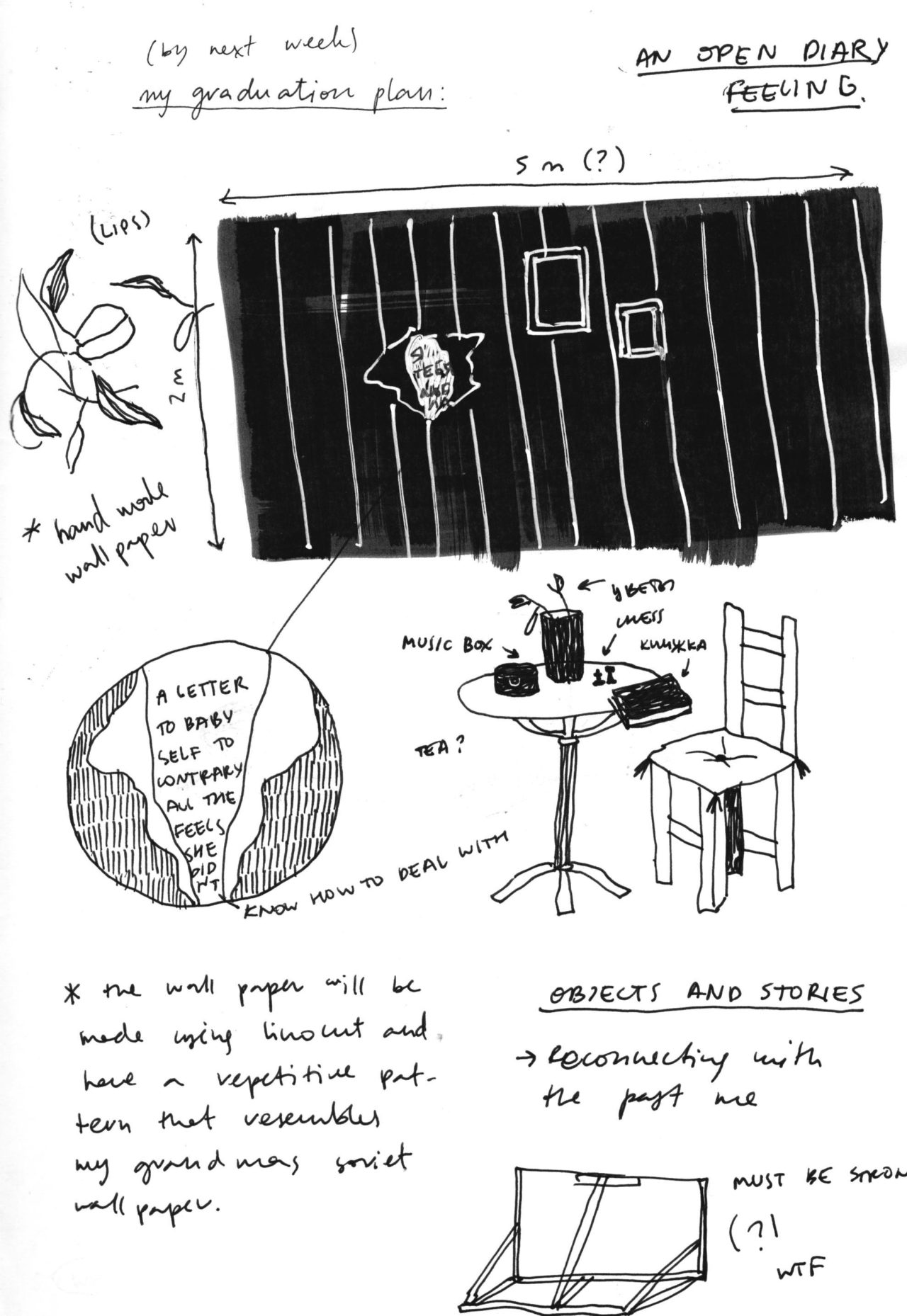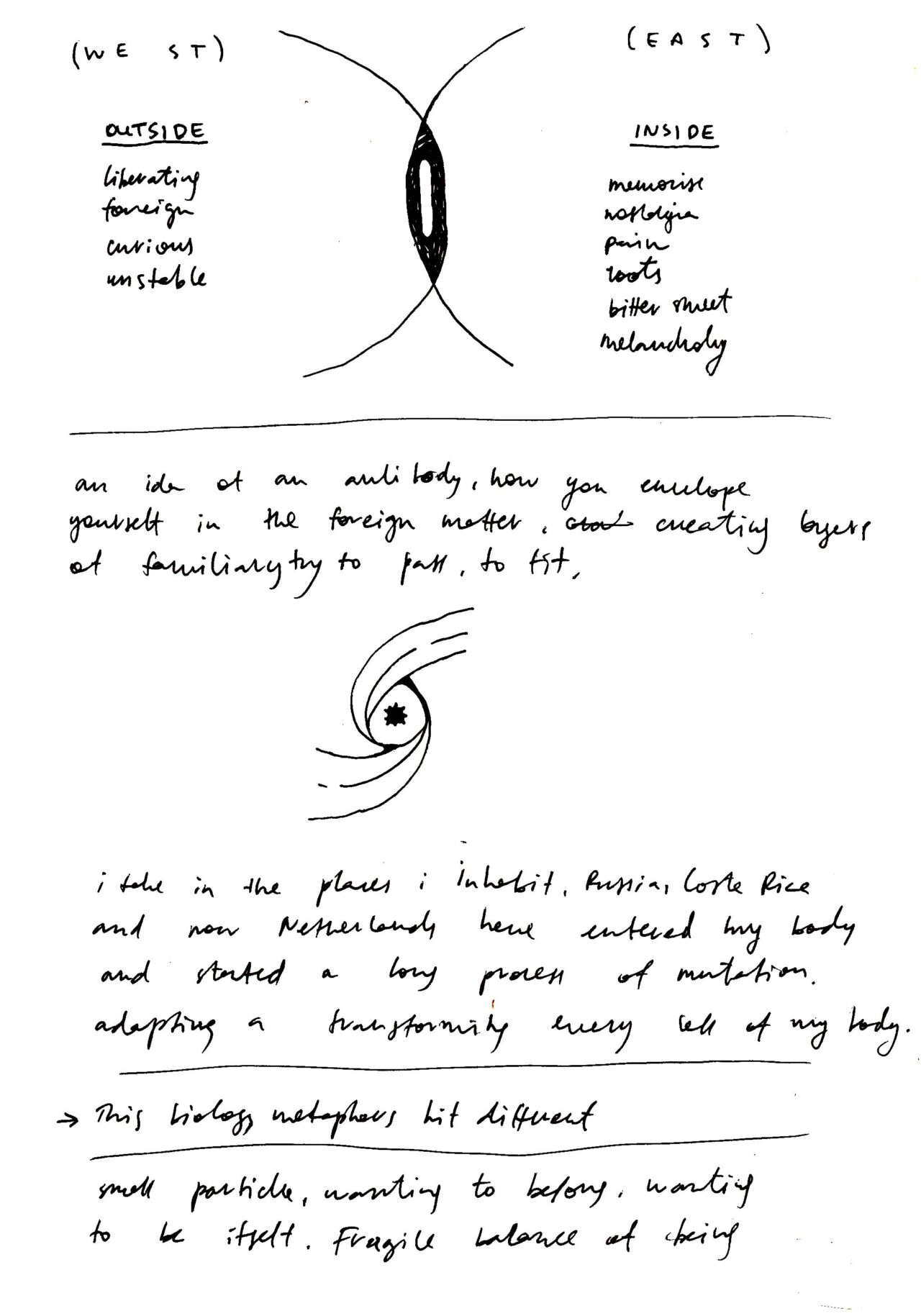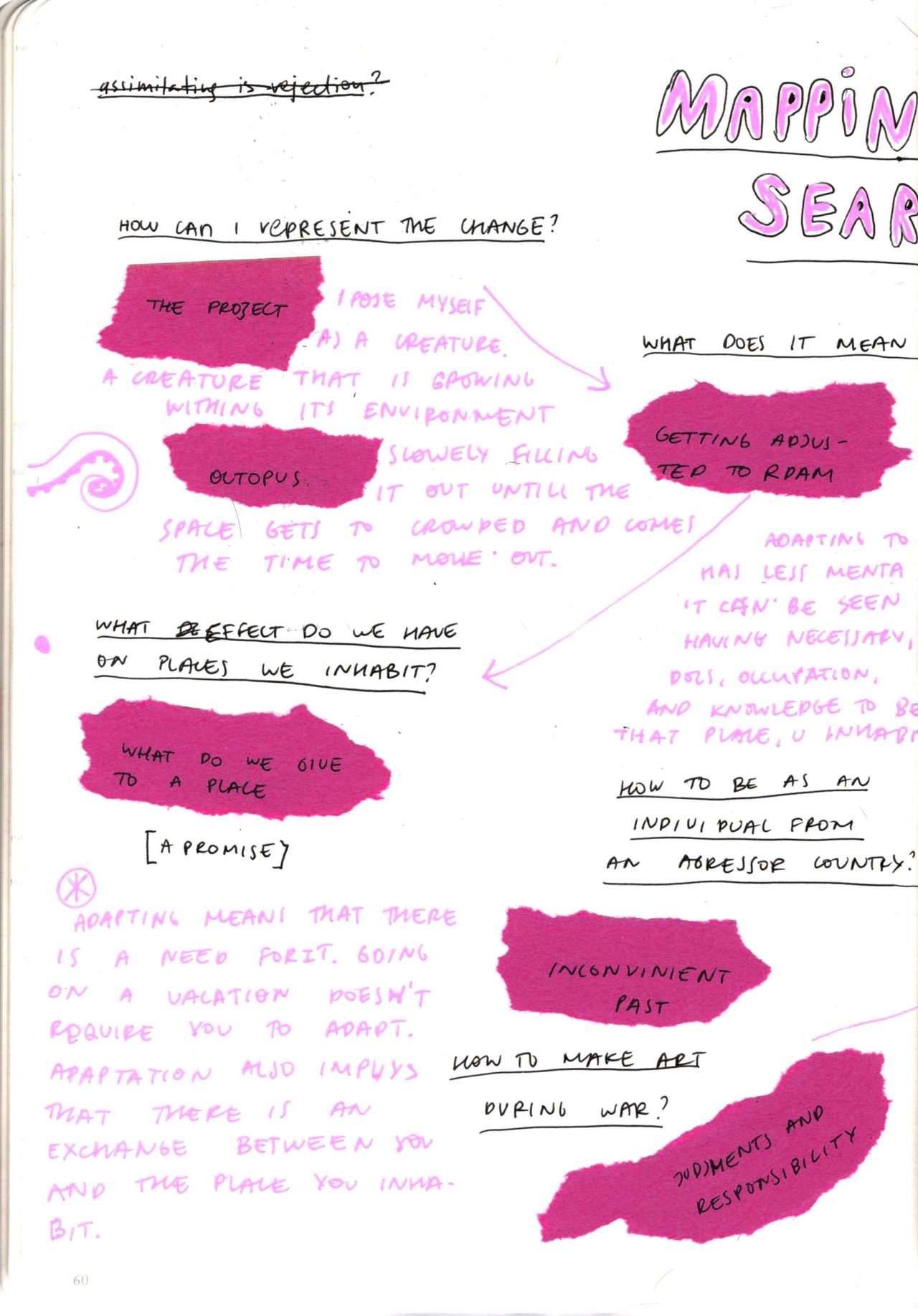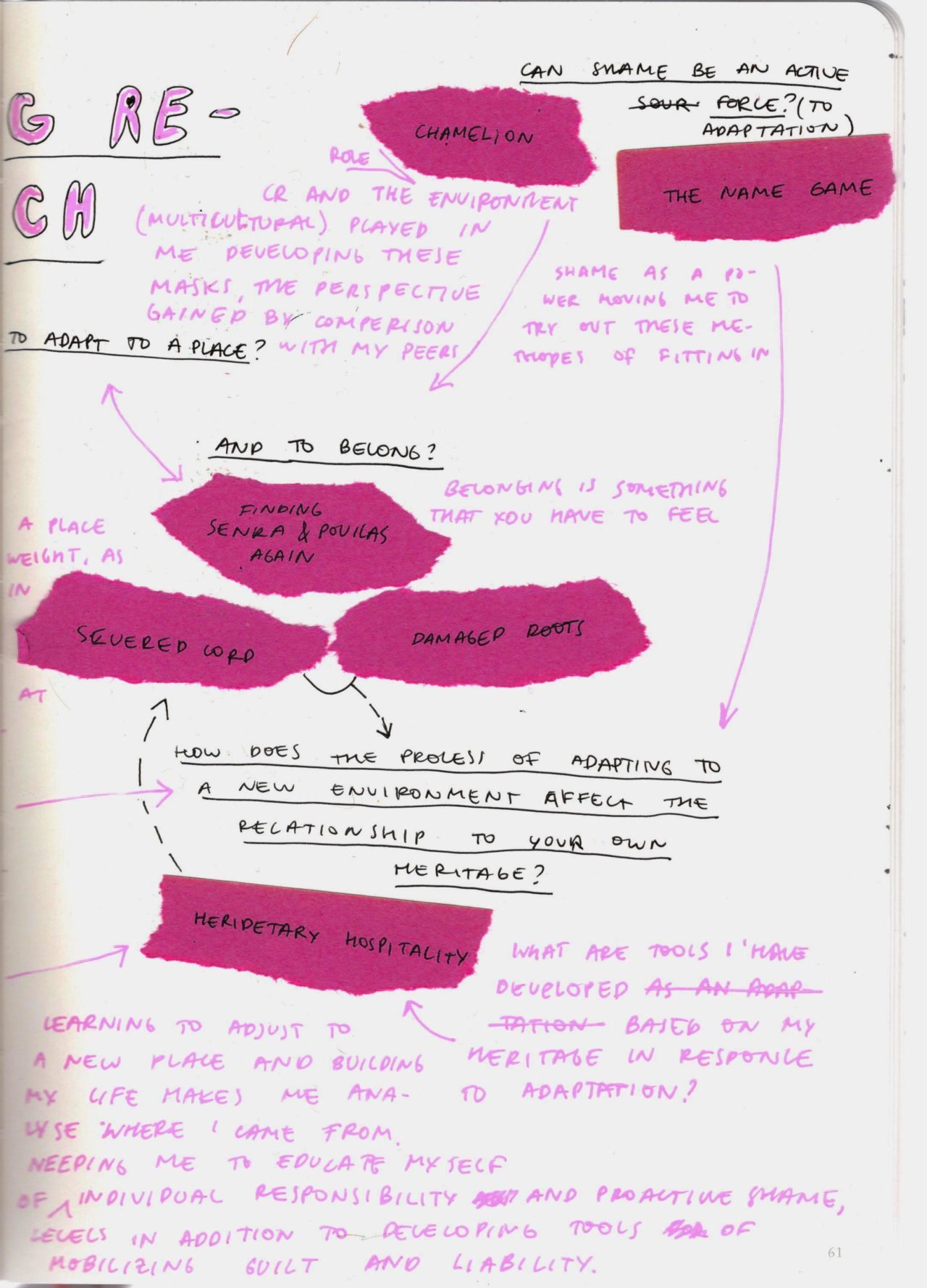Look, I Have Outgrown My Shell.
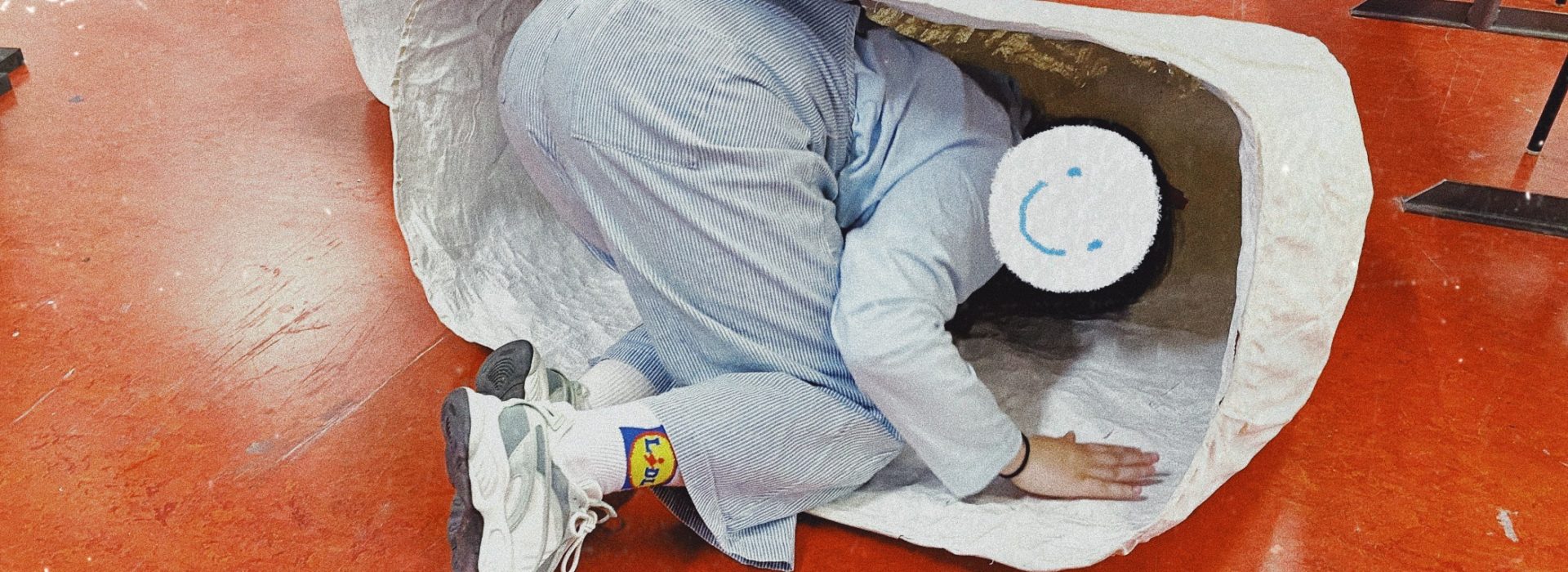
An installation that invites the public to experience stages of adaptation individuals go through when migrating to a new place.
In this work, I think of myself as a creature. I take in the places I inhabit; they have entered my body and started a long process of mutation, adaptation and transformation of every inch of my body. I am but a small particle, wanting to belong, wanting to be itself, a fragile balance. As I inhabit a place, I crave to call it home; I crave to feel at home. There’s also a home that inhabits me. Together with home or what home could have been, shame and melancholy live in me. Inhabiting me and people alike it brings us closer. As we collectively experience this phenomenon, we can weave a home around each other, creating new memories, wrapping them around us like a warm rug. In relation to friendship and connection, belonging could be defined as the process of merging and intertwining your past experiences of home with the new ones that you are able to collectively make with your group of peers (N. Lovell, 1998).
The shell I’ve inhabited has three chambers of three different sizes, from tall and big to quite small. Under the shell there is a carpet, made of square blocks, its size changes in reverse to the shell above. The important thing about the shell is the physical aspect of how much of your body it covers. As you move away from the place you grew up most of your life is still there and your body is almost fully covered by the shell. You are surrounded by images, memories and things that are familiar and easy, the carpet under your feet is small and plain.
It is difficult to move further in a process as complex as adaptation, thus the second chamber of your shell might be a bit chaotic, the fear of losing the familiar is strong and you grab and hoard anything you can reach from your “old” life. While you are busy navigating this chaos you might not realise that the carpet under your feet is getting bigger, sturdier and some colour begins to appear.
Now we reach the last chamber of this shell, it is quite small and probably can only go over your head. Around you isn’t much, seems empty and quiet, just a few faces across the plain canvas. Only the most important components have made it here, you gaze upon the faces of what matters to you the most from that place, frozen back in time. You feel the strength and urge to look down, beneath your feet extends a carpet, it’s big and secure, full of colour and life.
Maybe what you’ve been craving was outside all along, and you were just too busy and worried to look down and see the ground expand. Continuing the journey does not erase the past and does not erase the things you care about, but gives you space to move further.
Step out whenever you are ready, the ground is there.
The process of my adaptation has merged with the process of “how to move on from this?”. The war russia started this February created a new layer of my russian identity that I will never be able to rid myself of.
The crimes committed by my government have affected my sense of origin and belonging. It made it difficult for me to realise how I can be and make as an individual, coming from an aggressor country. How can I make art and talk about these personal issues that my origin has led me to have while going through adaptation to a new culture? Therefore, I have figured that educating myself further on the imperial russian past and reevaluating the extent of personal responsibility for one’s government is crucial. At the same time, adapting and assimilating to a new milieu has allowed me to start and continue this process of learning and reflecting.
I find it crucial to reflect on the war in Ukraine in my research because, as a russian maker, I don’t want to stay silent; I want to take responsibility for my choices and the ways I operate as a citizen of russia. When one is coming from under a government that has committed crimes, that is what we can call an “inconvenient past”, as there is no outside force to put to blame. While there is no such thing as guilt for the things you personally have not done, there is responsibility for things that happened without your direct participation. (Epple, 2020)
LEARN HOW TO HELP UKRAINE HERE!!!
© 2022 Maria Zotova
Project details
- Year
- 2022
- Programme
- illustration
- Practices
- No practice
- Minor
- Visual Culture
